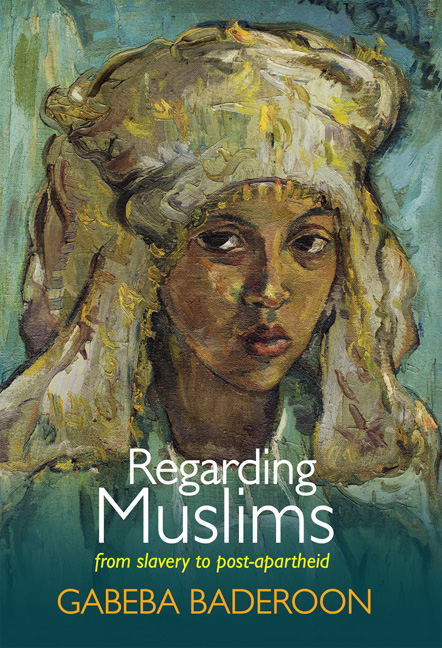Book contents
- Frontmatter
- Contents
- List of illustrations
- Acknowledgements
- Foreword
- Introduction: Beginnings in South Africa
- Chapter 1 Ambiguous Visibility: Muslims and the making of visuality
- Chapter 2 “Kitchen Language”: Muslims and the culture of food
- Chapter 3 “The Sea Inside Us”: Parallel journeys in the African oceans
- Chapter 4 “Sexual Geographies of the Cape”: Slavery, race and sexual violence
- Chapter 5 Regarding Muslims: Pagad, masked men and veiled women
- Chapter 6 “The Trees Sway North-North-East”: Post-apartheid visions of Islam
- Conclusion
- Notes
- Glossary
- Bibliography
- Index
- Plate section
Chapter 2 - “Kitchen Language”: Muslims and the culture of food
Published online by Cambridge University Press: 21 April 2018
- Frontmatter
- Contents
- List of illustrations
- Acknowledgements
- Foreword
- Introduction: Beginnings in South Africa
- Chapter 1 Ambiguous Visibility: Muslims and the making of visuality
- Chapter 2 “Kitchen Language”: Muslims and the culture of food
- Chapter 3 “The Sea Inside Us”: Parallel journeys in the African oceans
- Chapter 4 “Sexual Geographies of the Cape”: Slavery, race and sexual violence
- Chapter 5 Regarding Muslims: Pagad, masked men and veiled women
- Chapter 6 “The Trees Sway North-North-East”: Post-apartheid visions of Islam
- Conclusion
- Notes
- Glossary
- Bibliography
- Index
- Plate section
Summary
Intimacy is never simple.
– Adrienne Rich (2009)Ideology is externalised in food.
– Timothy Morton (2003: 108)Unequal intimacies: The Ayah in the kitchen
In his influential study of slavery, Status and Respectability in the Cape Colony 1750–1870, Robert Ross muses regretfully that “[b]ody language largely is outside the vision of historians”, but notes that there are nonetheless ways to read the traces of social relations through the body, including through food (1999: 2). In this chapter, I read the gestures and desires of the body in relation to Muslim food at the Cape, which was crucially shaped by slavery. I do this by analysing the figure of the enslaved woman who crafts dishes that shape the tastes of slave-owners. This discussion continues the shift in scale from landscape to the intimate space of the household and the culture of domesticity evoked by Berni Searle's Colour Me series, and focuses on food as an important element of the history and representation of slavery.
For hundreds of years, images of Muslim food have been the primary vehicle for creating a South African vision of Islam. In 1849, George French Angas's The Kafirs Illustrated presented “Malay” food as colourful spectacle, highlighting the “table groaning beneath the weight [of] pots of preserved ginger and nutmeg”, amid the sociality of “feasting” and “singing” (10), en-trenching the connection between “Malay” cooking and spectacle. This convention continued well into the twentieth century, and eventually colourful images of Muslim food were seen as characteristic of the Cape itself. I. D. du Plessis's foreword to Hilda Gerber's Traditional Cookery of the Cape Malays (1954) proclaims that “[n]o aspect of Cape Malay life has been more closely interwoven with life at the Cape than Cape Malay cookery.” I trace the role of this highly specific exoticism, which is echoed in other descriptions of “Malay” food in the formation of a more general South African identity. This formation gives an exotic version of “Malay” food a minor part in the construction of a broader South African culture – in which the brutal history of slavery is elided.
- Type
- Chapter
- Information
- Regarding Muslimsfrom slavery to post-apartheid, pp. 46 - 65Publisher: Wits University PressPrint publication year: 2014



